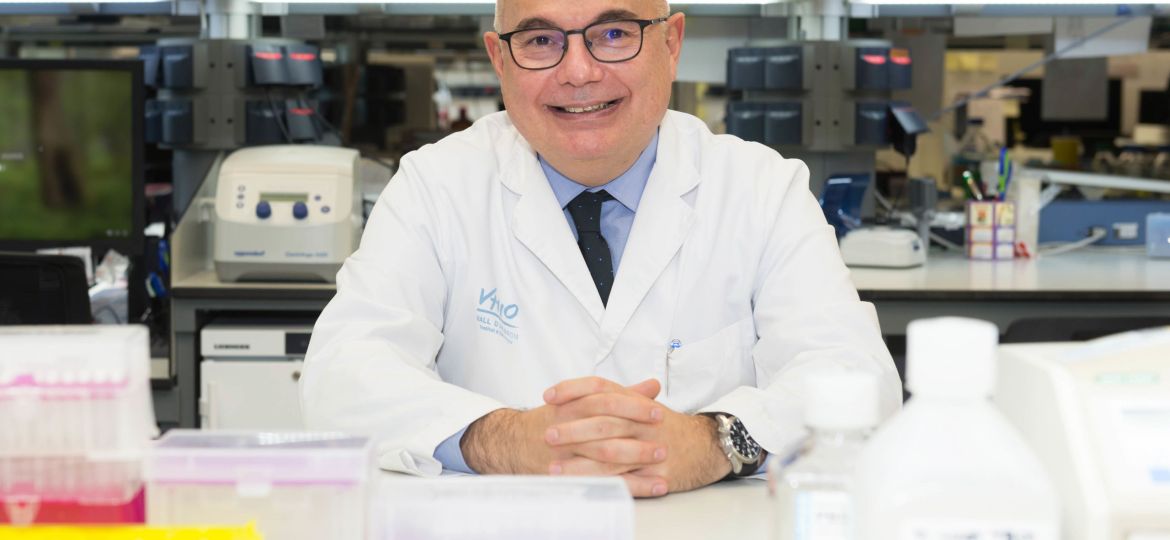
Recently published as a Review* in the open access journal Cancers, our Director, Josep Tabernero, and co-corresponding authors, VHIO’s Maria Alsina and Marc Diez, elegantly update on current strategies and novel therapies aimed at improving outcomes for patients with chemorefractory advanced-stage gastric cancer (GC).
Highlighting both the successes and limitations of recent clinical studies, they discuss treatment options in the refractory setting and also point to the promise of new, emerging approaches against this particularly aggressive tumor type with a poor prognosis.
“Gastric and gastro-oesophageal junction cancers represent an urgent and global issue in healthcare due to their prevalence and persistence. Ranking fifth in cancer incidence and fourth in cancer mortality, we must collectively continue to seek out more effective treatment strategies against this terrible disease,” observed Josep Tabernero, VHIO’s Director and Head of the Medical Oncology Department at the Vall d’Hebron University Hospital (HUVH – Vall d’Hebron Barcelona Hospital Campus.
Opening with a summary of the current treatment algorithm of this patient population, highlighting first and second line options for certain patients with metastatic disease, our co-authors suggest that the lack of more effective targeted therapies to-date might be due to insufficient biomarker-guided patient stratification in clinical studies, coupled with the necessary consideration of the inter-and intratumoral intrinsic heterogeneity of this complex disease.
Throughout their review our co-authors draw on several different studies, past and present, as they illuminate the importance of the close multidisciplinary follow-up of individual patients, monitoring of disease symptoms, and tumor evaluation in order to more precisely guide the selection of matched sequential treatment lines.
“Most gastric cancer patients present with inoperable advanced or metastatic disease at diagnosis, and approximately 50% of operated patients develop recurrence. Despite the fragility of these patients and the aggressive nature of this disease, real-world studies have extensively demonstrated a survival benefit when patients are able to receive more treatment lines,” said Maria Alsina, co-corresponding author, and a Medical Oncologist and Clinical Investigator of VHIO’s Gastrointestinal & Endocrine Tumors Group, headed by Teresa Macarulla and directed by Josep Tabernero.
Pointing to an upfront dose-reduction of chemotherapy using lower intensity regimens as a better option for these patients, the next sub-chapter is devoted to clinical trials in the refractory setting. They then go on to discuss chemotherapy in the third-line setting and focus on immune strategies, targeted therapies and novel treatment approaches tested in the third-line and refractory settings, outlining the promise ahead and mapping possible next step directions.
“We are optimistic that the gastric cancer treatment paradigm will soon shift through the integration of closer and more regular follow-up of patients, improved monitoring of symptoms, a more intensive radiologic assessment, and the deeper molecular analysis of tumors in individual patients, from the very outset,” added Marc Diez, a co-corresponding author of this present review and a Medical Oncologist and Clinical Investigator of the same group.
“As sequential treatment lines with few toxic adverse events continue to emerge as the optimal treatment approach, a third-line therapy comprising chemotherapy and immunotherapy and/or targeted treatments, when indicated, could translate in better outcomes. Improving the survival and quality of life of these patients is of paramount importance,” concluded Josep Tabernero, Past-President of the European Society for Medical Oncology (ESMO).
To access this comprehensive and expert review please click here.
###
Reference:
*Alsina M, Tabernero J, Diez M. Chemorefractory Gastric Cancer: The Evolving Terrain of Third-Line Therapy and Beyond. Cancers. 2022; 14(6):1408. https://doi.org/10.3390/cancers14061408.








